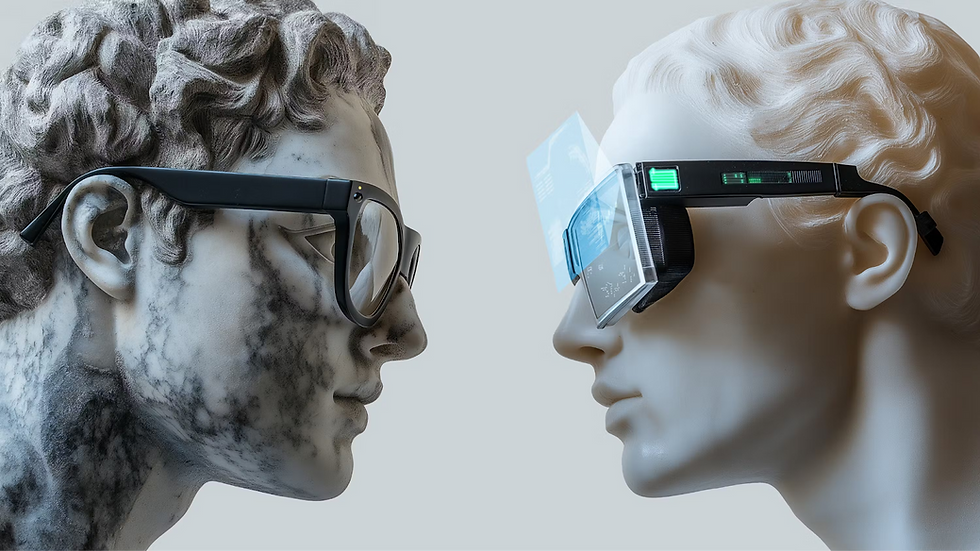Google, Meta, and Apple: Competing for the Future of Smart Glasses
- Leo Hwang
- Jun 19, 2025
- 2 min read
Smart glasses are resurging as Google, Meta, and Apple compete with innovative designs and ecosystem integrations. Google’s sleek prototype, made with Samsung and Gentle Monster, reignited industry interest. Meta boasts fashion credibility and early success but lacks a native ecosystem. Despite Siri’s limitations, Apple is best positioned to dominate due to its strong, globally integrated device ecosystem.
After a decade of the failure of the Google Glass, smart glasses were on a surge, as tech titans such as Google, Meta, and Apple turned ideas into the reality of smart glass. If their time lines hold, the customers will be able to choose their smart glasses among the three tech behemoths.
The instigator for this resurgence was when Google unveiled a sleek prototype that had a thumbnail-sized display, camera, and speakers featuring its Gemini voice assistant. These new designs were from the lessons learned from their failure through their 2013 model. They were designed in a consortium with Samsung for their hardware and Gentle Monster for their outstanding fashion. In essence, Google strives to marry haute fashion with cutting edge technology. Through this, Google hopes to end the competition before others even commence to build their products.
The outstanding plan of Google sparked an immediate riposte. Meta, already selling one million pairs of its Ray-Ban smart glasses last year, unveiled their plan for their new model. The device featured a micro-OLED display and real-time facial recognition. Moreover, Meta has early-mover advantage and its partnership with Ray-Ban, which had diverse experience in fashion credibility in head gears. However, critics voiced concerns that Meta lacked a native smartphone ecosystem unlike Apple and Google, forcing the users to rely on external platforms.
Apple also leaked their plan after Google revealed a sleek prototype that enthused the purchasers. Apple presented that the glasses would have cameras, microphones, and speakers for different entertainment. Apple’s worldwide smartphone ecosystem allows the glasses to connect with iPhone, MacBook, and Apple Watch. However, detractors suggest that a caveat would be Siri’s underwhelming performance compared to Gemini and Meta AI in conversational savvy.
Smart glasses shift the paradigm of the eyewear industry. Smart glasses, popular for their light weight, also guarantees unobtrusive access to information with comfort. According to its advocates, smart glasses will lead to mass usage in navigation, fast translation, and smooth content capture.
While filled with excitement, there are still some concerns about the smart glasses. Engineering challenges in smart glasses, include battery life, privacy concerns, and display brightness required to be jumped over. Moreover, history suggests that the existence of the three tech behemoths in smart glasses will ultimately consolidate into a single dominant platform.
From my perspective, Apple is best positioned to capture dominance despite their caveats with an in-house language model and Siri, because Apple has the most internationally connected smartphone ecosystem. Their ability to integrate smart glasses to their products will allow them to expand their smartphone ecosystem and dominate the smart glass market.




Comments